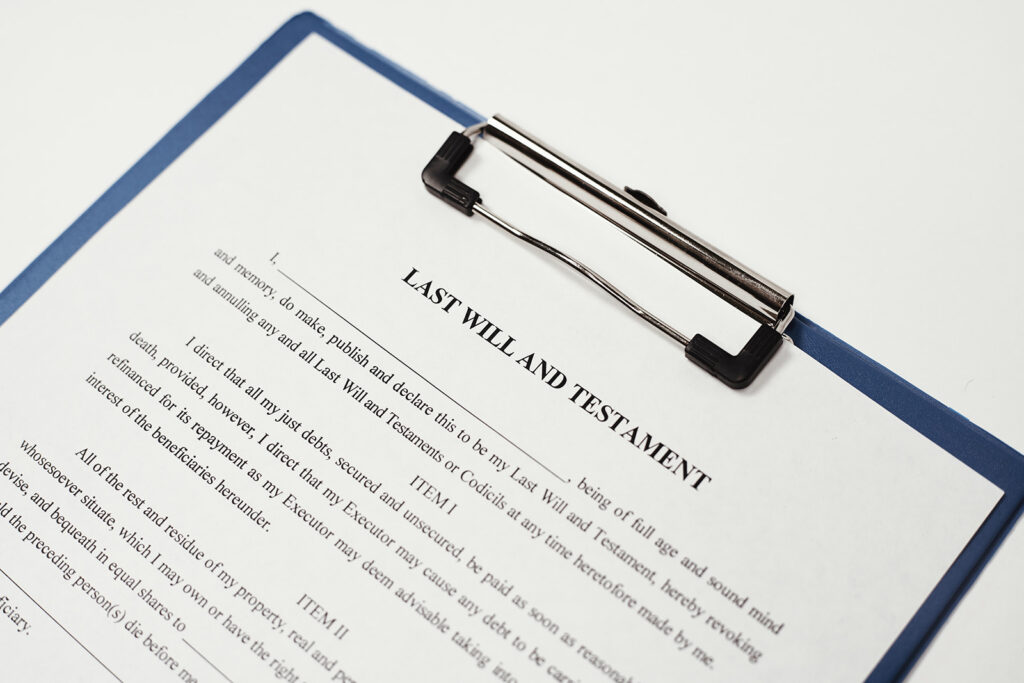Jump to a Topic
NC Inheritance Laws
How Can You Pass Personal Property While Avoiding Probate in North Carolina?
Can an Executor of an Estate in North Carolina be Compensated?
How Much Does an Executor in North Carolina Get Paid?
How Long Does Probate in North Carolina Take?
Do All Estates Have to Go Through Probate in North Carolina?
Does a Will Have to Be Probated in North Carolina?
North Carolina Intestate Succession
Settling an Estate in North Carolina
How Long Do You Have to File Probate After a Death in North Carolina?
Probate Court in North Carolina
Probate Code in North Carolina
When a loved one dies, you have to deal with the grieving process that doesn’t go away immediately. However, you may have other responsibilities that won’t wait. The deceased person’s estate must be managed and dispersed in accordance with their will.
As in other states, the legal process of dealing with a decedent’s estate in North Carolina is known as probate. The courts oversee the dispersal of the assets and payment of debts to ensure the wishes of the decedent as outlined in their will is honored. If you are involved in this process in any way, you should understand some of the basics.

NC Inheritance Laws
In most cases, probate will be necessary to distribute the estate of a deceased person. North Carolina’s probate process does allow for a few exceptions as long as they meet specific requirements.
How Can You Pass Personal Property While Avoiding Probate in North Carolina?
You have a few options to avoid probate in the state of North Carolina, but they will require some careful planning. The best way to keep an estate out of probate is through estate planning and by placing it in a revocable living trust. This type of trust allows the owner of the assets to maintain control while passing the estate to the named beneficiary when they die.
You may have specific assets that don’t need to go through probate. These assets have named beneficiaries, such as life insurance policies, checking and savings accounts, and retirement accounts. If they have a beneficiary, that person receives the asset automatically. Assets in joint tenancy transfer to the surviving person named as the owner.
Another option exists if the value of the estate is under $20,000 or $30,000 if a surviving spouse will inherit it all. You just have to fill out an Affidavit for Collection of Personal Property of Decedent and file it with the court.
Can an Executor of an Estate in North Carolina be Compensated?
North Carolina law allows for an executor to be paid for their work as well as for any expenses incurred while acting on behalf of the estate. The expenses must be approved before payment can be made.

How Much Does an Executor in North Carolina Get Paid?
According to the law, an executor can receive up to five percent of the value of the estate for compensation. However, this is five percent of the value after all debts have been paid. There is no guarantee of five percent in the law. It can be less if the court determines to set it lower. The executor must petition the court for payment and can ask for the five percent. The court will decide if the work involved warrants that amount or less.
How Long Does Probate in North Carolina Take?
It’s impossible to give a definite timeline on how long probate will take in North Carolina because each case differs. Since the personal representative must publish a notice in the local newspaper for four weeks and creditors have three months to file a claim, it will take a minimum of four to five months even on a small estate. With larger estates, it may take time to locate all the assets and selling will take more time if needed. If anyone contests the will, probate may be open for well over a year.
Do All Estates Have to Go Through Probate in North Carolina?
While most estates will need to go through the probate process in North Carolina, there are exceptions. The state allows for a simplified procedure, known as summary probate. This option only works if the sole heir is the spouse. Otherwise, you will need to go through the probate process.

Does a Will Have to Be Probated in North Carolina?
A will must be filed with the court in North Carolina. State law allows for two years for the will to be entered into the court records. However, an heir may file sooner if the executor fails to file within 60 days of the death of the person.
North Carolina Intestate Succession
When a person dies without leaving a Last Will and Testament, it is called dying intestate. How the belongings and assets of the deceased are transferred to heirs and beneficiaries depends on intestate succession laws. Be aware, assets and property that have named beneficiaries won’t be affected by intestate succession. For example, bank accounts, investment accounts, life insurance policies, payable on death accounts as well as property and assets that transfer upon death.
In the case of intestate real estate, the value of the real estate is included in the total value of the estate and will go through probate. Intestate real estate laws provide for the property to be passed to the beneficiaries according to probate court guidance.
Typically, according to North Carolina intestate succession, the estate would be passed to next of kin – parents, surviving spouse, children, and so forth.
Settling an Estate in North Carolina
Settling an estate through probate in North Carolina is a fairly straightforward process, but it can get complicated. State law outlines the steps, which are similar to other states. However, some details, such as deadlines, may differ. It’s important to know how probate works in North Carolina and understand the basic steps.
- A petition for probate must be filed with the court in the county where the decedent lived along with an application to act as a personal representative or executor. The court must approve this application and present letters showing they are allowed to manage the estate.
- The personal representative must find and inventory all the assets of the estate and protect them.
- The personal representative may need to have an appraisal done and sell some assets, if necessary, to pay debts.
- The personal representative files tax returns and pays any taxes owed as well as any other debts.
- The personal representative distributes the remaining assets to the heirs and transfers title.
How Long Do You Have to File Probate After a Death in North Carolina?
While there are exceptions, it is expected that probate will be filed within 60 days of a person’s death. During that period, a death certificate and copy of the will should be obtained and all paperwork filed with the court, including the appointment of the executor or personal representative.

Probate Court in North Carolina
The Superior Court in each county of North Carolina acts in probate matters. The clerk is the probate judge who presides over most cases. If the will is contested, the hearing will be with the Superior Court judge. You can find the court for the county where the deceased person lived on the North Carolina Judicial website: Judicial Districts Maps | North Carolina Judicial Branch (nccourts.gov).
Probate Code in North Carolina
Chapter 28A of the North Carolina Statutes deals with the administration of estates. You can find the chapter on the North Carolina General Assembly website: General Statute Sections – North Carolina General Assembly (ncleg.gov).

